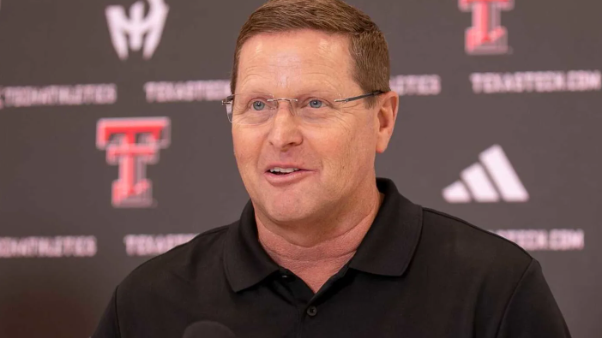This season, college football has introduced a new feature allowing coach-to-player headset communication during games. Coaches can directly talk to specific players, typically quarterbacks, via helmet speakers until there are 15 seconds left on the play clock. This change followed an NCAA probe into former Michigan staff member Connor Stallions and claimed sign stealing.
However, a recent ESPN report raised concerns among some programs regarding the security of this new technology, suggesting it may not be adequately protected against cheating. Max Olsen highlighted that Texas Tech’s athletic director, Kirby Hocutt, revealed that helmet communications for Power Four programs have been sent over unencrypted frequencies.
This vulnerability means that someone with a scanner and the know-how could potentially eavesdrop on coaches’ real-time communications with players during games.
Despite these concerns, the actual risk of exploitation isn’t as straightforward or practical as it sounds. Olsen quoted a Big 12 chief of staff who dismissed the potential risks as insignificant, stating: “There’s no real advantage. One, you’re speaking a different language. Two, if you think you can act on what they say in real time, you’re delusional. You’re just being a paranoid football coach. You can’t relay it to the kids quickly enough.”
It’s important to mention that GSC, the manufacturer of the communication devices, has requested the return of all devices for security updates, according to ESPN. Nevertheless, it seems that the integrity of the games hasn’t been compromised due to this security issue.
The NCAA has assured Texas Tech and other institutions a thorough report on the signal exposure and any related effects that may be identified, as reported by ESPN.
